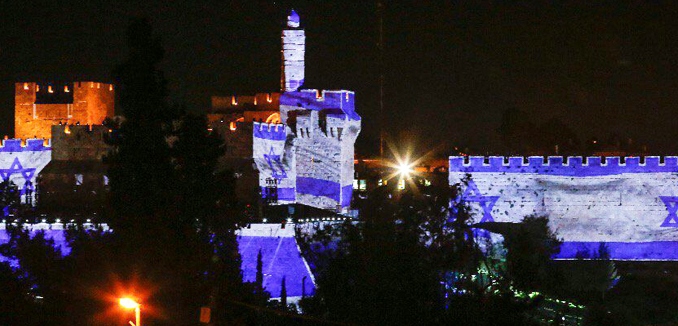Israel on Wednesday celebrated the fiftieth anniversary of the reunification of its capital city, Jerusalem.
Jerusalem was secured by Israeli forces on June 7, 1967, corresponding to the 28th day of the Jewish month of Iyar, after two days of fighting with Jordan.
In an account of the battle to retake Jerusalem, journalist Abraham Rabinovich wrote that when the Six Day War first broke out with Egypt, Israel had sent a message to Jordan’s King Hussein asking him not to join the fighting. But Hussein, who had entered into a defense pact with Egypt, instead chose to put his forces under the command of an Egyptian general.
Although Jordanian forces began firing against Israeli positions, Israel did not attack Jordan until Jordanian forces broke into Israeli-held western Jerusalem and that Radio Cairo reported that Mount Scopus — which remained in Israeli hands after the 1948 War of Independence —
was captured. While the report turned out to be false, it was seen by Israel as an expression of Egypt’s intent.
After two days of fighting, Israeli troops surrounded the Old City of Jerusalem, the last Arab position in the city. At 9 AM the following morning, the Israeli cabinet approved an operation to retake the Old City. Israeli forces entered through the Lion’s Gate and made their way to the Temple Mount, facing little resistance.
After this historic victory, Israel’s Defense Minister Moshe Dayan said:
This morning, the Israel Defense Forces liberated Jerusalem. We have united Jerusalem, the divided capital of Israel. We have returned to the holiest of our holy places, never to part from it again.
To our Arab neighbors we extend, also at this hour – and with added emphasis at this hour – our hand in peace. And to our Christian and Muslim fellow citizens, we solemnly promise full religious freedom and rights. We did not come to Jerusalem for the sake of other peoples’ holy places, and not to interfere with the adherents of other faiths, but in order to safeguard its entirety, and to live there together with others, in unity.
When the Jordanian army first captured the Old City of Jerusalem in May 1948, they expelled all of its Jewish inhabitants, contrary to the dictates of international law. From 1948 to 1967, Jordan destroyed over 50 ancient synagogues in the Old City, destroyed ancient Jewish graves on the Mount of Olives, and refused to allow Jews to visit their holy sites, many of which were desecrated. Jordan also imposed restrictions on the city’s Christian population, including by controlling the materials taught in Christian schools and forbidding Christian charities and religious institutions from purchasing property.
[Photo: Jerusalem Municipality ]




